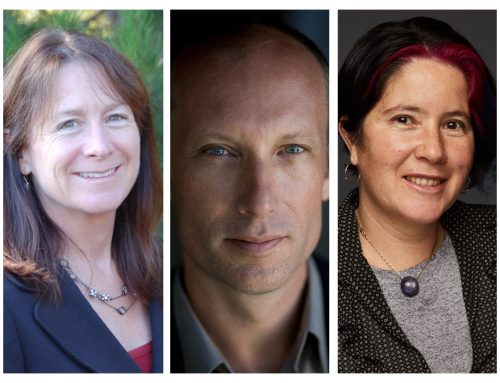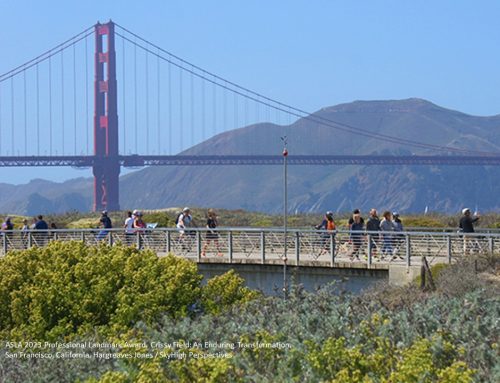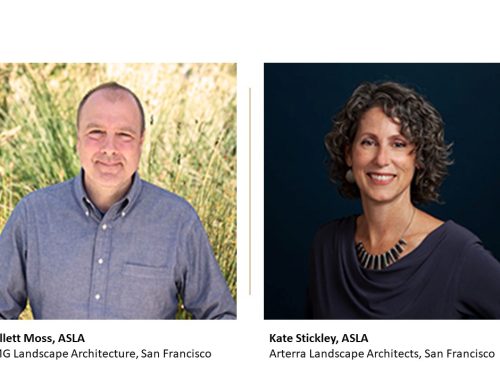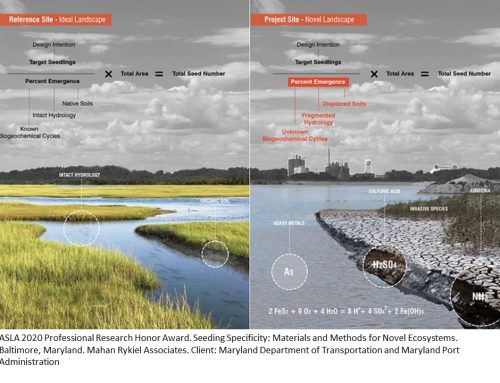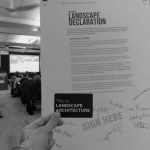 by Ashley Cruz
by Ashley Cruz
As a kickoff to World Landscape Architecture Month I attended a lecture that helps define my beliefs in what our profession of landscape architecture stands for: the New Landscape Declaration. This is a new-age declaration, since updated from the 1966 Declaration of Concern, addresses the basic "ideals of equity, sustainability, resiliency, and democracy" , and to me, are the foundations of today's public landscape architecture projects.
Our four guest lecturers shared their inspirations and brought their own insight to the new declaration:
Jacinta McCann recommended to read the declaration often, and each time you will find a new "phrase" to appreciate and take into practice.
Adam Greenspan encouraged finding the synergy between function of design and keeping aesthetics.
Amir Gohar, PhD offered the idea of thinking at different scales , to learn both the local knowledge by engaging the local population and also looking beyond the site to the greater surrounding environment.
Brian Jencek summed it up with the notion of placemaking, in the communities in greatest need. Through the design of site for expression, we create sites for democracy and community building.
The evening went on with a panel discussion, touching upon topics such as; politics, noting that , if we are lucky , it's policy that allows the large-scale project to move forward at a faster pace; providing education to our youth (!), they are present, interested, see things differently, and ready to learn about our profession; and we need to be prepared for the "tidal wave of change" that will cause our designs to have the flexibility and fluidity to adapt over time. Remarks and participation from the crowd urged the want for another forum like this in the future.
What I walked away with, and found most interesting, is that the Declaration has been translated into over 20 languages and is opening up the idea of climate change. This is a very exciting and challenging time to call oneself a landscape architect, "we can build a new identity for society as a constructive part of nature."
CLICK HERE for the lecture recording

